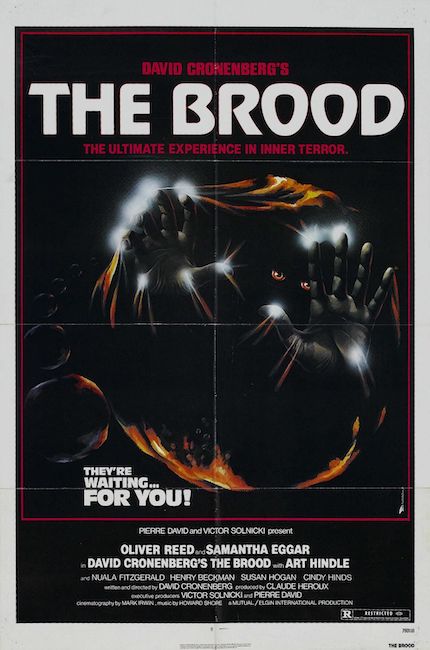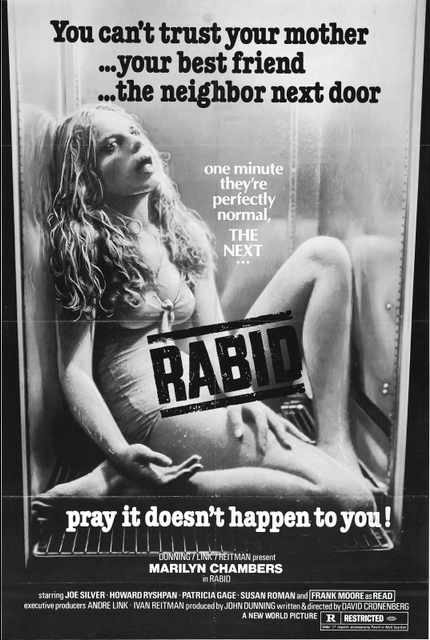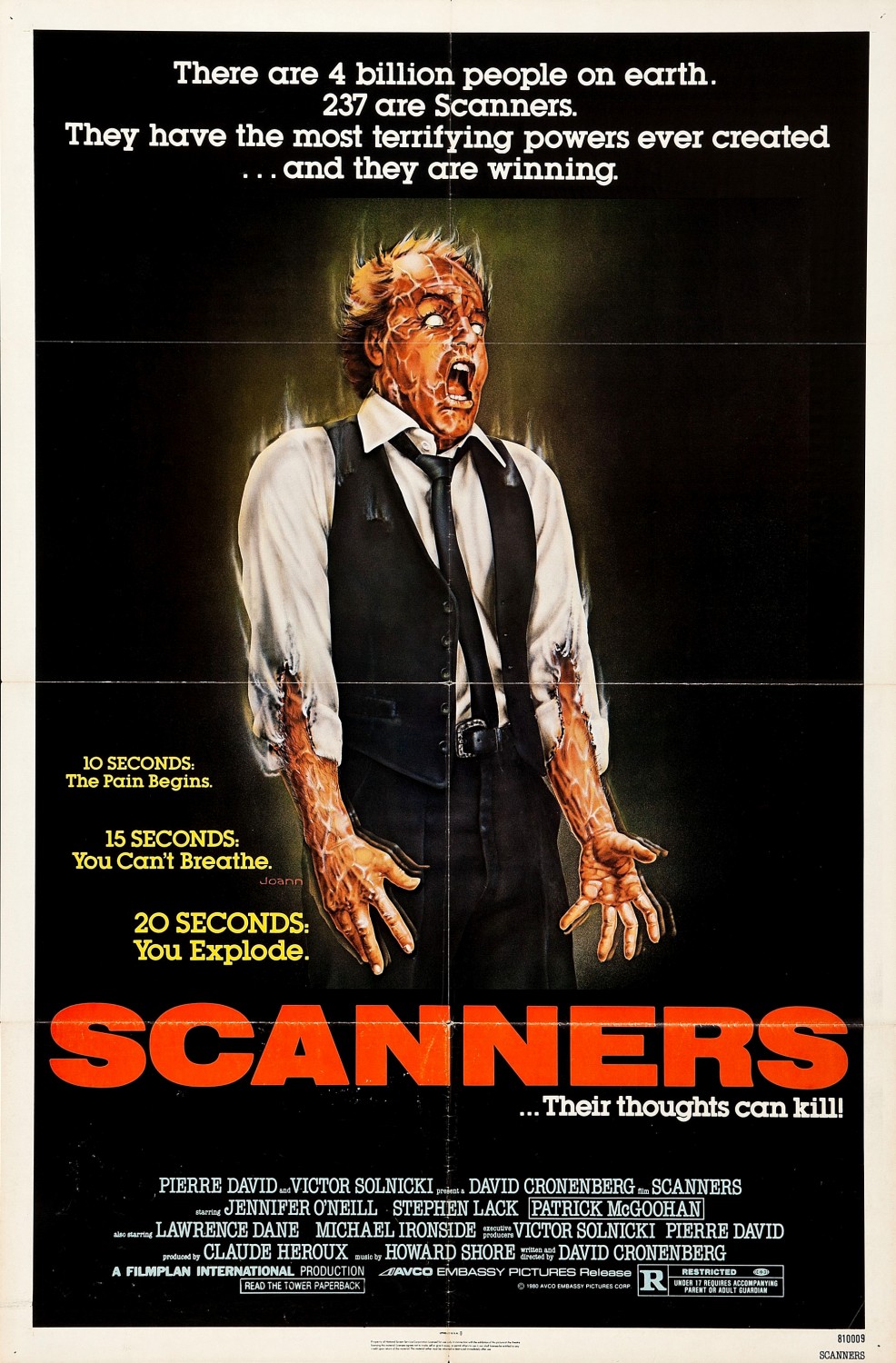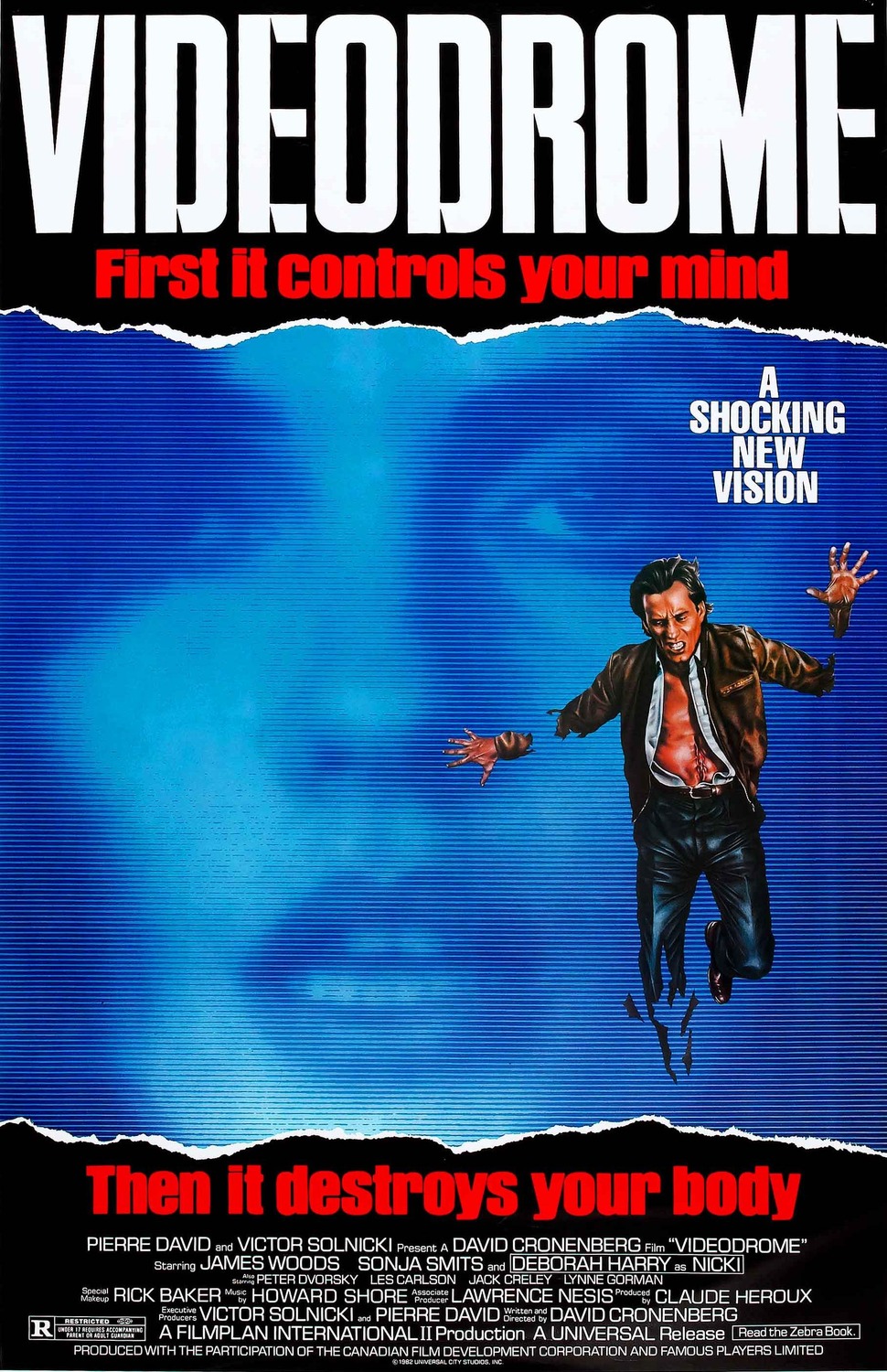Now Streaming: Early David Cronenberg

In celebration of Crimes of the Future, a new film by David "Mr. Canada" Cronenberg that will open in North American movie theaters on Friday, June 3, we're looking back at his distinguished career this week.
Bracing in their bold storytelling, David Cronenberg's trio of horror films in the 1970s stood apart for their originality of vision.
His first two films, Stereo (1969) and Crimes of the Future (1970), which are both now streaming on The Criterion Channel, offer glimpses of the genius to come -- but only brief glimpses. The first is shot in black and white and the second in color; both are silent films that Cronenberg wrote, directed, photographed and edited, with voice-over narration added to hour-length projects. Since we know what will come afterward, they are interesting to watch, but in no way can they be described as compelling. They are student projects by a filmmaker searching for how to express his voice.
As Cronenberg himself says in an interview, available on The Criterion Channel, he didn't set out to make a horror film when he first decided to make filmmaking his career; it's just what spilled out of him as he wrote his screenplay for what became Shivers (aka They Came From Within). He was, of course, conscious that he needed to make something more commercial than the experimental works he had already made in order to truly make his passion into something that could pay the bills, but what poured out of his subconscious was a fevered tale of parasites that turned ordinary people into sex-mad beings, intent only on coupling.
The unexpected success of that film launched him into his next project, which became Rabid. Like Shivers, a visually-compelling inciting incident kicks off Rabid, which, also like Shivers, largely takes place in one building, reflecting its modest budget, though it encompasses more landscape than its immediate predecessor.
The spirit of both films is contagiously frenzied, and that spirit truly fits the material at the heart of Rabid. Purely by chance, Rose (Marilyn Chambers) barely survives a road accident and is brought to a nearby medical facility, where experimental plastic surgery is performed upon the comatose woman as part of an effort to save her life.
Upon waking from a coma some two months later, Rose is not the same as before the accident, leading to the spread of a horrible madness that infects the city of Montreal, eventually inspiring the creation of a website that covers strange little films from around the world widespread panic.
And, as well all know, people, especially those in positions of authority, have no freakin' idea what to do about a pandemic, so they decide to kill everyone who is infected and let Someone Else sort it out later.
I first saw the film on a double-bill with Shivers, probably in 1980, if I recall correctly, at a repertory cinema in Los Angeles, during a time when the city was replete with such cinemas houses, which allowed developing film fans to soak in the glories of movies. Cronenberg followed up these first two films with Fast Company, a step away from horror, though the motorized action feels like a sequel of sorts to the accident at the beginning of Rabid. I saw it once on a DVD that I no longer possess, and it's probably worth revisiting, especially since it's now streaming on HBO Max.
Cronenberg raised his horror game with The Brood (1979), a piece filled with brooding atmosphere that gradually ramps up into something truly bizarre and disorienting and disturbing. Throbbing with intensity, it makes me nervous just thinking about it. (The film is now streaming on HBO Max as well as The Criterion Channel.)
His next two pictures raised the stakes even further. Quickly immersive, Scanners (1981) follows Stephen Lack as a man with powers that he is only beginning to realize that he has, much less understand how he should use them. Ranging from the rural into the city, the film feels almost apocalyptic and introduced the great Michael Ironside to a wider audience. The 'exploding head' got a lot of attention in those days, but the film as a whole still plays very well as a gripping horror-thriller. (now streaming on HBO Max and also the Criterion Channel).
Videodrome (1983) featured a vibrantly dark performance by James Woods at his most charismatic and Debbie Harry at her most desperate. The film has always been too dark and gooey for my personal tastes, which may be why it left such a large imprint upon my memories.
David Cronenberg made the 1980s his own, fusing the grindhouse and the arthouse into his own ferocious beast for that decade and beyond. This site is based in Toronto and still reflects a Canadian perspective on cinema that I've always found refreshing, and I think it's fair to say that Cronenberg has played an important role in that, whether the editors and writers all find the filmmaker's work as propulsively entertaining and enlightening as I do or not.
From my own, Hollywood-adjacent perspective, Cronenberg's early horror films stood out from the other films I was gorging myself upon during the late 70s and early 80s, not only for the brazen subject matter, but because they were different and felt original; it wasn't my sensibility and that was OK.
I walked away from Shivers and Rabid and The Brood and Scanners and Videodrome muttering to myself, wondering who could make films that were so remarkably pungent, a feeling of discombobulation that came back to me as I rewatched them, still wondering and still muttering to myself.
Next in the Celebrating Cronenberg series: a Canadian goes to Hollywood. Note: This article is expanded from an article previously published in October 2020.
Now Streaming covers international and indie genre films and TV shows that are available on legal streaming services.













